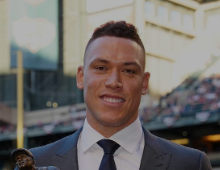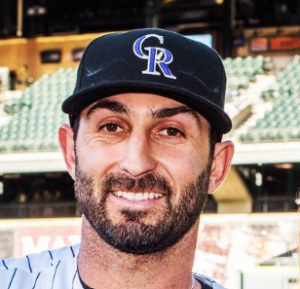Table of Contents
CV vs Resume: When to use which and the Difference
CV and Resume are two easily mistaken words. Though you are using these words interchangeably in daily conversations. Ever wondered what is the difference between the words Resume and CV. In this article, you will go through the basic differences between a Curriculum Vitae and Resume. We will also go through the common mistakes made by made students while writing these. The most important question of What details should be added to our Resume and CV are also covered.
What is CV?
CV or Curriculum Vitae, which is Latin for ‘course of life. A CV provides a summary of one’s skills and experience. This is longer than a Resume.
This includes a high level of detail about one’s academic background, degrees, and researchers. This also has an in-depth document that covers education and other accomplishments like publications, awards, and presentations. Thus a CV is longer than a resume and it includes more information usually from an academic background.
What is Resume?
A resume is one or two page long formal document that lists a summary of a job applicant’s education, skills, and work experience. This should be kept as concise as possible.
- In the USA and Canada, the resume is preferred. An American will use CV only for a job abroad or if searching for an academic position.
- In New Zealand, Ireland and UK, a CV is used in all contexts.
- CV lives in Europe, Asia, and the middle East.
Get: IBM HR Interview Preparation
The difference between Resume and CV.
CV and Resume differ from each other on very basic levels. The three very essential difference between Resume and CV are length, purpose, and layout.
- A resume is a brief summary of skills, education, and experience lasting only one to two pages. Whereas a CV may last longer than a resume.
- Chronological order is essential in a CV whereas in a Resume information may be shuffled.
- CV is intended to be a full record of career where a resume is a brief and targeted set of skills.
There are few important points you should always remember:
- While you put a photo on a Resume, the chances of rejection increase by 88%. So, don’t use a photo on your CV/Resume unless it is for
- 5 sec to 7 seconds is the average time a recruiter will spend reading your resume.
- 76% of CV/Resume are rejected because of unprofessional emails.
How to write a CV and Resume?
There are certain details that one must not forget to include in any CV or Resume. These are basic information regarding your Name, Contact Number, Educational Background, Skills and many others. A complete guide on basic details is given below.
List of details to Include:-
- Personal Details: – A CV always starts with personal data and contact information. Data includes your name, email address, house address and contact number. Never add superfluous details about the religious view, parents/children’s name, etc.
- Education Institutions: – Include details of your high school, graduation, post graduation, etc. But care to add them in reverse order i.e. Ph.D., Masters, Undergraduate, and at last school.
- Work experience: – The widely accepted form of CV is the chronological curriculum vitae. In such a CV, the data is presented in reverse order. Start with the most recent and emphasize on the recent jobs. List the role for each job.
- Skills: – Remember the club you joined in School or the NGO you interned at. All those skills like foreign language, computer skills, leadership, etc should be added to CV. Always remember to add skills relevant to job and position you are applying for. And never brag about skills you don’t have.
Note: Aim to head for two pages but never more than three. Don’t include your photograph, salary history, etc. It should be clean, concise and relevant.
Get: How to Prepare for Govt; Jobs Exam
Tips on Writing the right CV:-
-
Job Description
The clues of a perfect CV are hidden in the job description. Go through it from starting to end and write down all requirements and also the one’s you can satisfy. Then start brainstorming about all things and works and projects you have undertaken and how they are relevant to the job description
-
Presentation
Efficient and clear presentation of CV will earn you more time that interviewer spends reading your CV. A clean layout, well structured, readable font and language, and no folds or crimps.
Remember the upper middle area – CV hotspot where the recruiter’s eye will fall first, so include most relevant points there.
-
Making most of your Interests.
You can have varied interests from sports to biology or archaeology but smartness is in highlighting interests relevant to described post. You can always add details of the position of responsibility or work in a team.
Interests should never include watching sports or listening songs, such interests are vague. You need to sound interesting, so add interest that you have done something about. For example, if your hobby is reading books, maybe you started a blog about reviews or a well maintained Good reads account could be a help.
Also, add all your interest, show how diverse you are in your interests and hobbies.
-
Making most of your skills.
Over our college and school, there are always some set of skills we would have mastered. Be it writing and communication skills, the ability to work under pressure, Good organization, Self-motivation, IT skills, Teamwork, Punctuality, Quick learner or any other. Look for situation or circumstances that can present that you actually possess such skills. Awards in that specific field, Good attendance in classes with a summer job, Experience in Powerpoint and Excel, Co-ordinating in school/college clubs, organizing an event successfully, etc.
Ask yourself what such skills sound like you and make a list, work on it over time and you will have a good set of skills for your CV or Resume.
-
Don’t be generic.
You should always be well aware of what industrial sector you are applying to for the job. Once you have established what job entails and how you fit the requirement, create a CV or Resume that is specific for that job. Each CV needs to be specific for each job and company even if the post is same. A general CV will not land you into any jobs or interview calls.
-
Work History and Experience
Always be positive while talking or writing about your past job or internships or any other work experience. Use words like ‘organized’, ‘developed’, ‘learned’ or ‘developed’. You can also try relating your skills to the previous company you worked with. This presents your positive attitude towards the responsibilities you had and that you will show them in the new company too.
-
Updated CV
Make sure your CV is always updated with a correct phone number and email addresses. Also, add new experiences or skills that you may have acquired over time. For example, if you have worked on a new project or volunteered for an event, add it to your CV.
-
Including Reference
Always give reference of people who have employed you in past or your project head that can vouch for your skills and experience. In case you have never worked before it is alright to give reference of your teacher or guide.
Mistakes to Avoid:-
-
Typos and Grammatical Mistakes.
Writing a visually attractive Resume is as important as writing it grammatically correct. If not, the employer’s may find you as “The person who doesn’t care about little details” and you may even be rejected as such.
Spellcheck your own resume few times and you can even ask your teachers to have a look as it is sometimes hard to find your own mistakes.
-
Wrong Keywords
There is no ideal resume that can fit all job posts. Each one has to be crafted according to the company and job post. Thus comes the keywords. Find those eye-catching words from the job listing and companies motto and objective and try to fit them in your resume.
This will portray that you are serious about this job and are ready to take care of fine details.
-
Too much Info
Not everything that you have once done or have been a part of or all your hobbies have to be listed on the resume. One must be aware of what this job seeks and what is relevant.
A lot of white space is always recommended in your resume.
-
Obsolete Resume.
It was last year you had a look at your resume to find it all right and applied to a job. So when you again needed your resume, I want you to stop right there. Don’t use the same resume you did last year.
There are always a new set of skills or training or volunteering or contact information that has changed about you over the year. Thus, edit your complete resume. Add all new skills you acquired and experience that matters.
-
Why you Quit.
Your reasons for leaving your previous jobs are not something to be discussed in your resume. You can always fill up your employer about these during a personal interview.
Another Tip: Don’t talk about your previous boss and job. It should be always in a positive nature no matter how bitterness you feel about your previous job.
AVOID RESUME MISTAKES
-
REREAD AND EDIT
To avoid all grammatical and typo errors read and always re-read your resume. It is very important to have an error-free resume. You can also try to read your resume aloud.
-
ASK a friend
It is advisable to ask your friends and teachers to have a look. This might be helpful to catch mistakes that you couldn’t.
Though a Resume is a one page or two page document but it portrays your sincerity towards small details. A quality worth showing by writing a well structured and grammatical mistakes free Resume. Follow these small steps and avoid common mistakes.



